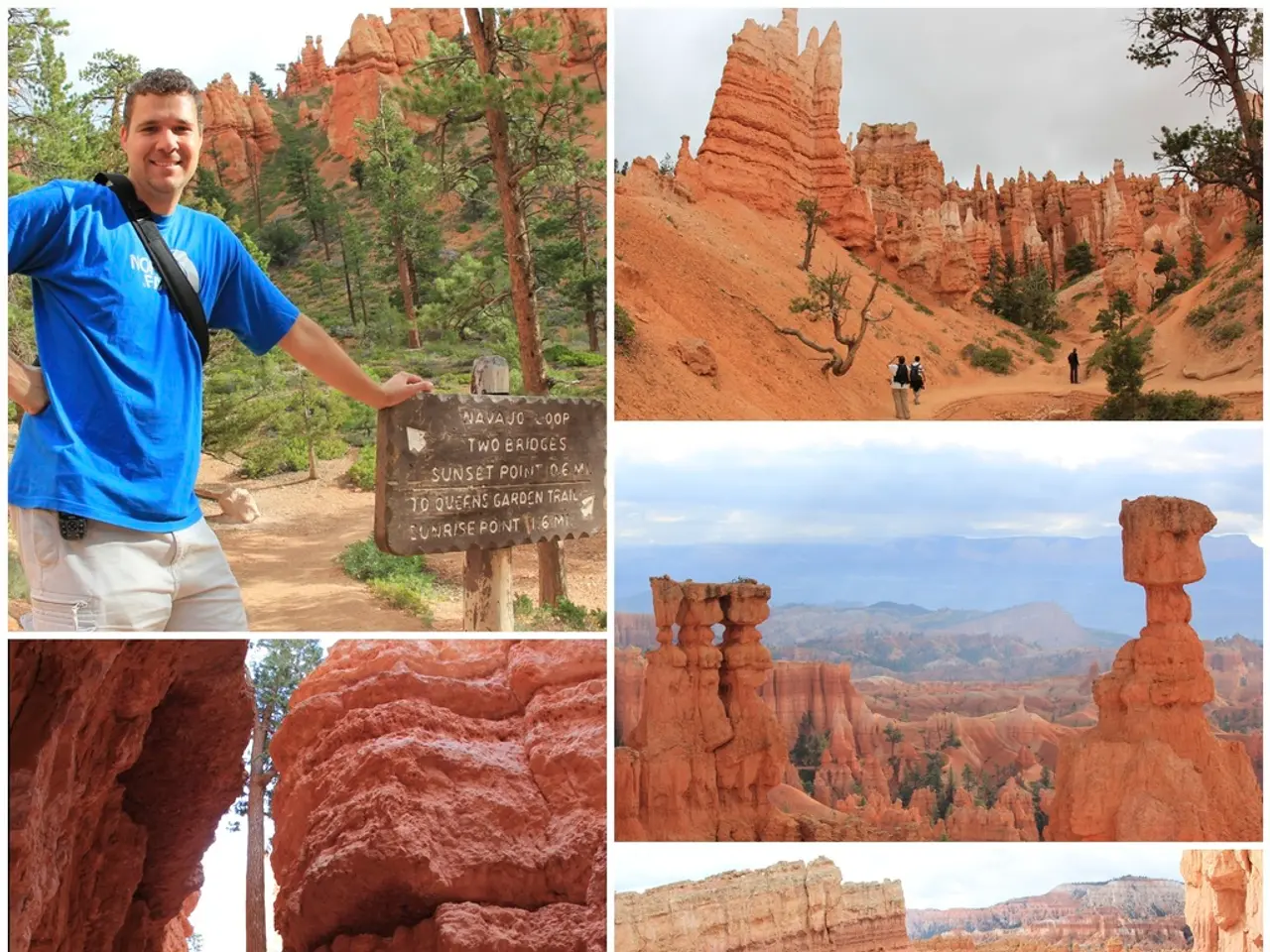The Remembrance of Woodlands: Explaining Why Raw Nature is Insufficient Alone
Planning a Responsible and Meaningful European Trip
Exploring Europe's national parks can be an enriching experience, but it's not just about observing the landscapes. By incorporating historical sites and memorials into your travel itinerary, you can create a trip that is both educational and emotionally impactful. Here's how to plan a responsible and meaningful trip:
- Thorough Research and Planning Identify national parks that also feature historical sites or memorials. For instance, Plitvice Lakes National Park in Croatia combines natural beauty and heritage, while Greece's Mycenae and Mystras ruins offer deep cultural context alongside natural surroundings.
- Adopt a Respectful, Empathetic Mindset Learn about local customs, languages, and cultural etiquette before and during your visit. Approach memorials and historical sites with solemnity and sensitivity to enhance meaningful engagement.
- Choose Sustainable Transportation and Accommodation Minimize environmental impact by using trains, buses, or local transport when traveling between parks and historical locations.
- Engage with Local Guides or Educational Tours Gain deeper insights into the history and natural environment by joining local guides or educational tours where available. This supports community knowledge and respectful interpretation.
- Respect Park Rules and the Sanctity of Memorials Follow guidelines, stay on marked trails, and avoid behaviors that disrupt wildlife or disrespect the solemnity of memorial sites such as war monuments or religious ruins.
- Balance Outdoor Activities with Quiet Reflection Incorporate quiet reflection into your itinerary. For example, hiking in serene landscapes like the Dolomites allows a peaceful appreciation of nature, punctuated by visits to nearby cultural sites and monuments to history.
Some notable memorial sites in Europe include the Sachsenhausen memorial site near Oranienburg, Germany, and the Dachau memorial, which is located two hours from the Bavarian Forest. Remember, these are not places for selfies; they are places for silence, for honesty, for listening.
Don't expect to leave unaffected after visiting a memorial. You may feel anger, confusion, or guilt. But that's not failure; that's what empathy feels like when it becomes real. The quiet of the trees in Oranienburg, Germany, carries a heavy history.
Europe's national parks are not devoid of history; they are rich with context. Planning a responsible trip involves shaping your route to reflect what matters, both geographically and morally. By following these guidelines, you can ensure that your trip is not just a holiday, but a journey of understanding and respect.
- Select Parks Thoughtfully Prioritize national parks that hold significant historical or cultural importance, such as Yellowstone National Park in Wyoming, USA, which boasts a wealth of geological and wildlife treasures as well as Native American history.
- Embrace Eco-Friendly Travel Practices Opt for air travel with carbon offsetting options to reduce your carbon footprint. Choose camper vans or ecotourism lodges for sustainable accommodation while traversing multiple parks and historical sites.
- ** map Out Your Route Carefully** Making use of maps and online resources like AllTrails can help you select parks and trails suited to your interests and guide your exploration, ensuring a comprehensive experience.
- Support Nature Conservation Efforts Contribute financially or through volunteer work to local conservation organizations in the parks you visit, providing valuable support for preserving the environment and promoting sustainable tourism.
- Discover Hidden Gems Uncover lesser-known natural wonders like the Bialowieza Forest shared between Poland and Belarus, known for its natural beauty and biodiversity, as well as centuries-old history with ties to European mythology.
- Document Your Adventures Responsibly Share your experiences of natural beauty and cultural significance through photography, blogging, or social media but be mindful of the impact on local communities and the sanctity of memorial sites.
- Adopt a Holistic Lifestyle Approach Transform your travel adventure into an ongoing embrace of nature, history, and the values of cultural preservation and responsible tourism, ultimately enriching your lifestyle and promoting a more conscientious approach to travel.




